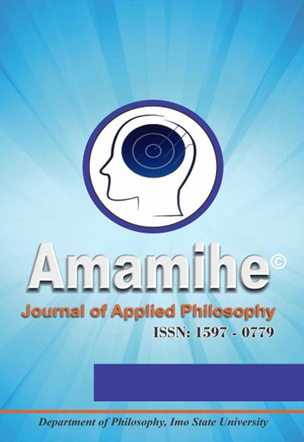
Vol. 21 No. 2, 2023
ABSTRACT
The thrust of this paper is on the African traditional oath as a mechanism for peace and social order within the framework of Afro-Communitarianism. The quest for peaceful coexistence occupies the central tenet of Afro-communal living which is the doctrine that emphasizes oneness, togetherness, relationality, and sociality of human persons. However, the desire to achieve this has suffered a setback as the conflict remains an inevitable end in the human circle. In pursuant of this goal, the forbearers of African traditional society instituted certain mechanisms to salvage society and man from the Hobbesian state of nature. These measures evolved to handle confrontations and the reality of social disorder in their various manifestations. One such mechanism is traditional oath-taking which is suited and capable of maintaining and sustaining justice, peace, and harmony in the community. Despite the vital role played by this mechanism in conflict resolution and the establishment of justice within the Afro-communal space, the paper observes with dismay that contemporary African societies relegated this mechanism to the background and have rather embraced the Western justice system with its attendant frustrations and failures. Using the dialectical and critical methods of philosophical investigation, the paper advances some moral arguments in favour of the African traditional oath (within the Anaang Thought System) for the establishment of justice, conflict resolution, maintenance, and sustenance of peace within the parameters of the Afro communal setting.
